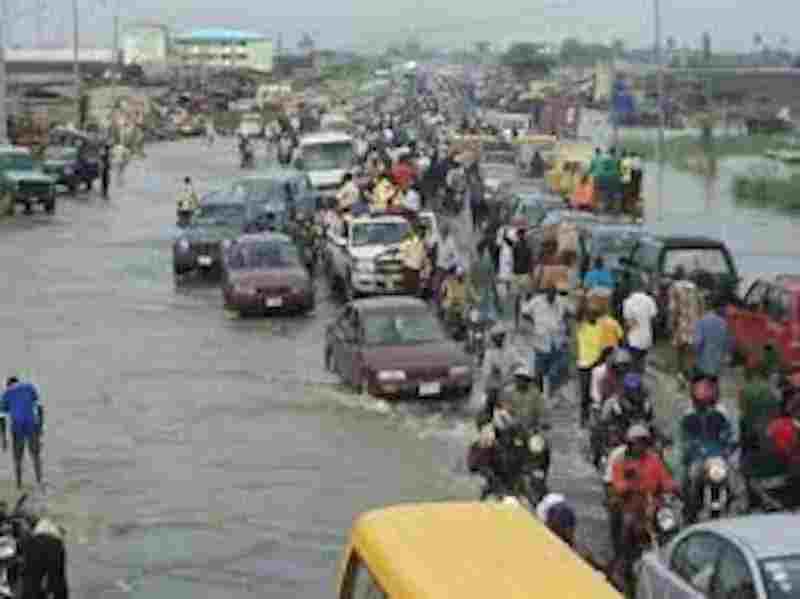Across Nigeria the annual wet season sees our news reports and social media feeds ‘flooded’ with images of commuters wading through rain and sewerage to get home, cars washed off roads and businesses and livelihoods floating on busy streets. Then, the cleanup begins, the news forgets, people rebuild and, before long, the process repeats.
But it shouldn’t be this way and if we don’t act now the situation will only get worse.
Take Lagos where annual flooding has risen in severity as climate change progresses. In 2018 alone, flooding caused $4 billion worth of damage, costing around 4.1% of Lagos State’s GDP. The city struggles to manage and recover from these floods, which not only cause disruption to business and social activity but also threaten to eventually make the city unlivable.
Lagos is not alone. More than 70 urban areas face significant flood risks, with 171 million people in sub-Saharan Africa exposed to the dangers of flooding.
But, while people will routinely think about taking out insurance for their cars and to cover their health needs, too often they don’t insure against risks like floods. In 2019, SwissRe estimated that 91% ($1 billion) of losses from climate risks in Africa were uninsured.
We need to better manage risk to make our cities more resilient to climate change and the devastation it can cause. In Lagos, institutions such as the Lagos Resilience Office, the Financial Centre for Sustainability Lagos and the Lagos Business School could provide tangible solutions as well as practical advice. Alongside this, agencies such as UKAid funded FSD Africa and other global experts can facilitate support and investment for this process.
But where do we start? Using Lagos as an example, we combined data, interviews, and models to see how flood risk in the city could be better managed and identified five key takeaways for improvement.
Number one, while flooding happens regularly, most public agencies and private businesses can’t quantify the risk. This includes insurance companies who often struggle to determine their own clients’ exposure. Or think of it this way; how do you know how high to build the bridge, when you don’t know how high the river flows when it floods? When we know this, we can build investment cases for resilient infrastructure and bespoke insurance products.
Which links closely to our second finding: the lack of usable consistent data. Too often data is missing or fragmented. When we lack data, we lose the ability to accurately model risks and impacts. And when we do have data, there is a need for more collaboration between stakeholders to ensure it is used.
Third, trust is critical. Throughout the world, consumers can be skeptical of insurance companies and the same is true here. Innovative insurers are looking to address this through deliberately seeking out opportunities to offer clients real value. This also means that insurance companies should move beyond just policy sales, and instead become advisers who can better help clients understand and manage the exposure of their business or property.
Fourth, from flood sensors to satellite-based early warning systems, technology can have a profound impact on how we identify and respond to immediate threats. Partnerships are needed to develop and realise these opportunities, and this requires strong leadership from the local business community and public administration. The insurance industry, and indeed the broader financial sector in Nigeria, have a crucial role in developing local innovation and collaboration, and in leveraging the readiness of African and global reinsurers and experts to provide finance and support.
Finally, the best data and innovations can only go so far. Leadership is critical. Insurers have a big role to play, and can step up by adjusting their corporate strategies. Many institutions, including FSD Africa, are ready to partner with innovators to develop new solutions.
It’s vital this work is prioritised – to safeguard development gains made in recent years, boost sustainability and protect livelihoods.
Lagos is just one example, but many of the findings offer insights for cities across the continent. With flooding likely to get worse, it is critical to act now to help our cities and communities withstand the flood.
• Thomas Wiechers, Assistant Director (Risk & Resilience), FSD Africa (thomas@fsdafrica.org) www.fsdafrica.org – FSD Africa is a specialist development agency working to build and strengthen financial markets across sub-Saharan Africa. It is funded by UKAid.
• Mia Thom, Technical Director, Cenfri (miathom@cenfri.org) www.cenfri.org – Cenfri is an independent African economic impact agency. We work to boost economic growth and increase sustainable development in emerging markets.
source: thisday live





